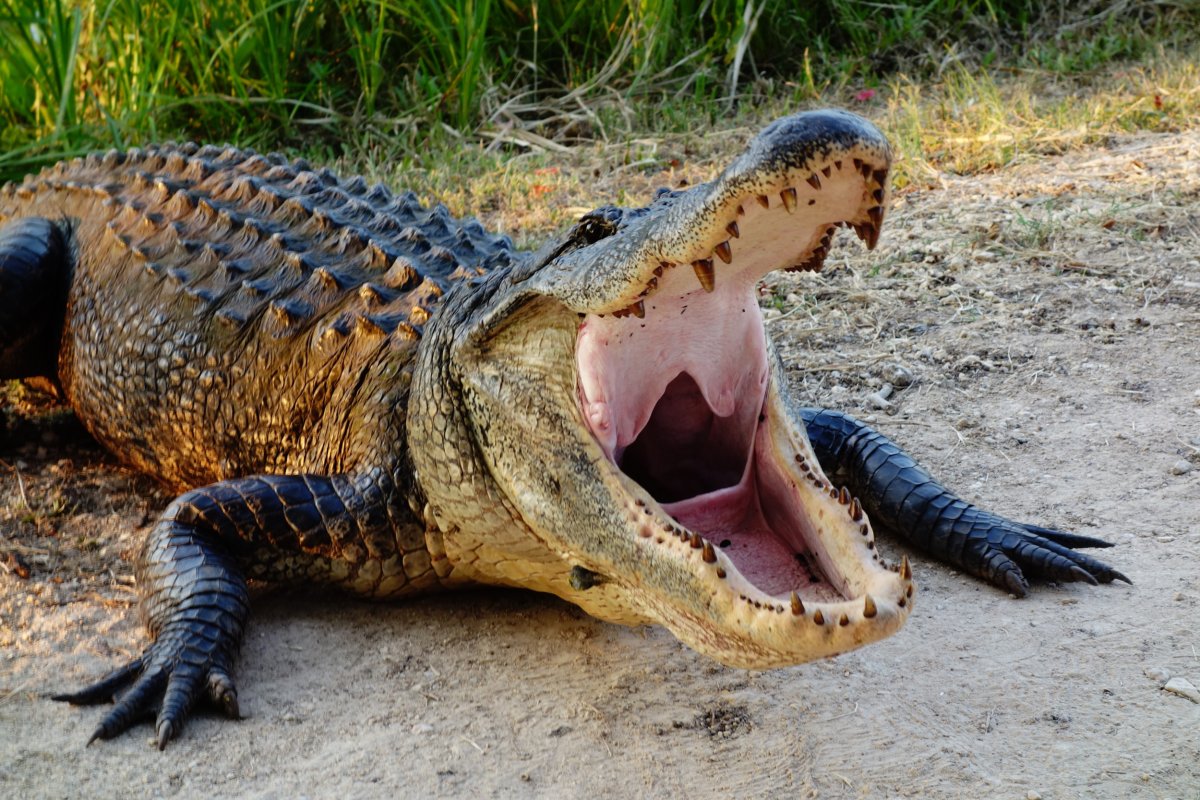Florida police have captured an alligator that was found loose on a street in Tampa, footage shows.
The nine-foot reptile had been wandering around N. Howard Ave. & W. Kathleen St. shortly after 1 a.m on March 29, the Tampa police department reported.
"The growling gator was taken for a ride by our partners from the Florida Fish and Wildlife Conservation Commission to find a more suitable home," the police department said in a statement.
While waiting for a trapper from the FWC to arrive, two officers held the animal down while they secured its mouth so that it didn't snap at anyone, WFLA reported.
An alligator trapper with the FWC, Phil Walters, then arrived at the scene to remove the reptile.

He told WFLA that if alligators aren't removed from roads they can end up causing damage to cars.
"Being aware of your surroundings will keep you out of trouble, because that alligator, if you had hit him in a small car, you'd be totaled," Walters told the news outlet."If you were on a motorcycle, your body would probably be laying out in the street."
In the footage, officers can be seen securing the alligator with a rope.
An officer then jumps on the gator to pin him down. They then cover the animal's eyes with a towel to help it relax and secure its mouth with duct tape.
Florida is home to 1.3 million alligators. The animals can be found in all 67 counties of the state, which is home to more than 21 million people. Gators prefer the state's swamps and waterways, but they are occasionally spotted in populated areas.
It isn't uncommon for alligators to wander onto roads, especially at certain times of the year.
Alligator mating season begins in early April, meaning the reptiles become more active while they are in search of a mate. They are fierce predators and can pose a threat to humans if they feel provoked or threatened.
However, despite the state's abundant alligator population, attacks on people remain very rare.
The FWC operates a statewide nuisance alligator program, which keeps tabs on threats the reptiles pose in developed areas. An alligator may be considered a nuisance if "it's at least 4 feet in length and believed to pose a threat to people, pets or property," the FWC says on its website.
Nuisance alligators are euthanized in order to prevent any harm from coming to people. They aren't relocated as they will often attempt to wander back to the site of their capture.
Do you have an animal or nature story to share with Newsweek? Do you have a question about alligator? Let us know via nature@newsweek.com.
Uncommon Knowledge
Newsweek is committed to challenging conventional wisdom and finding connections in the search for common ground.
Newsweek is committed to challenging conventional wisdom and finding connections in the search for common ground.
About the writer
Robyn White is a Newsweek Nature Reporter based in London, UK. Her focus is reporting on wildlife, science and the ... Read more





